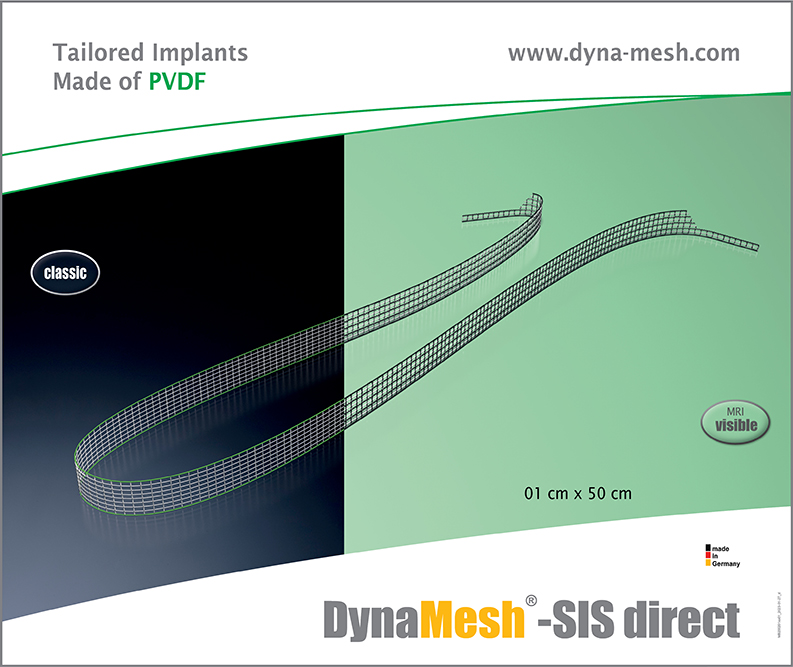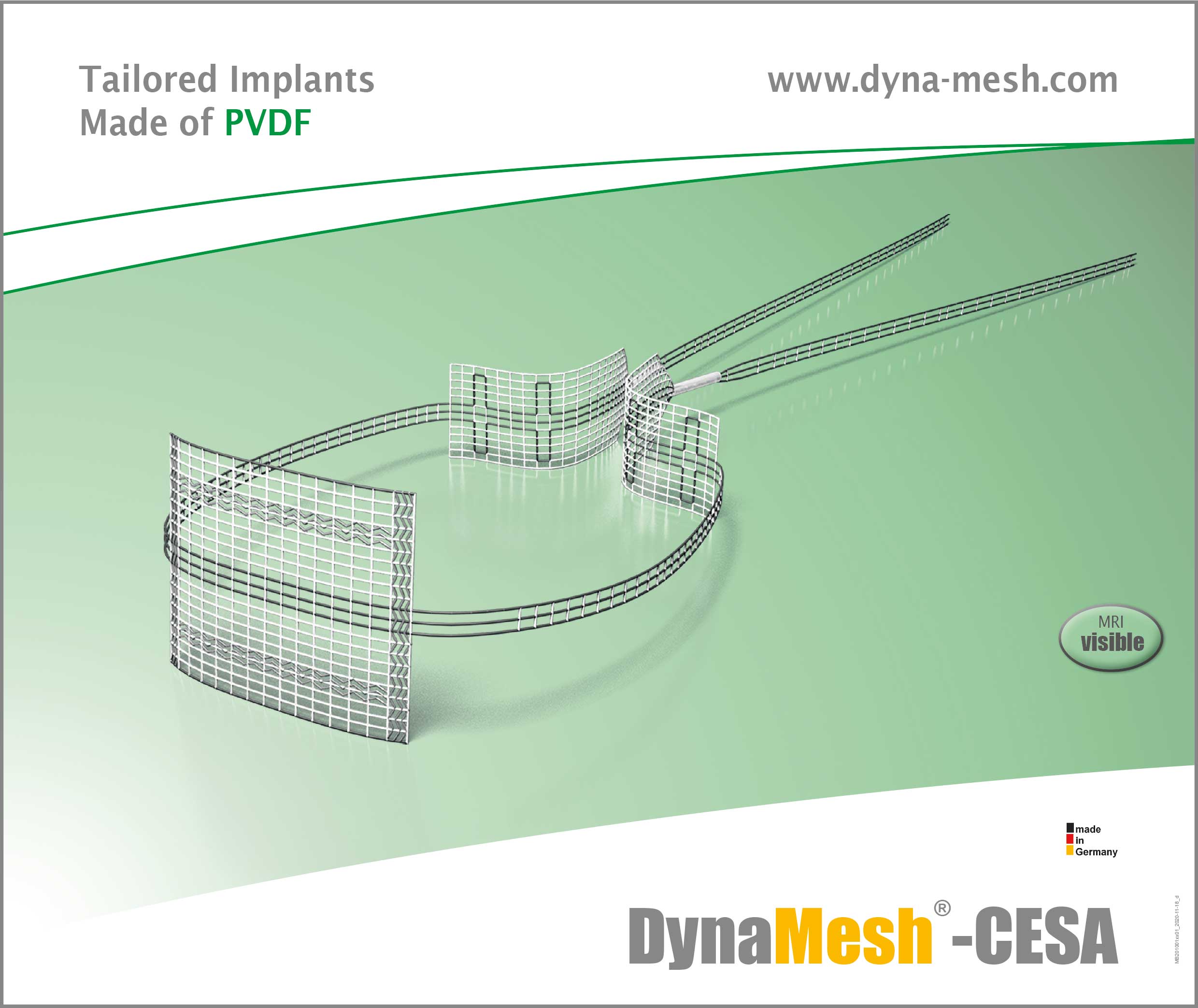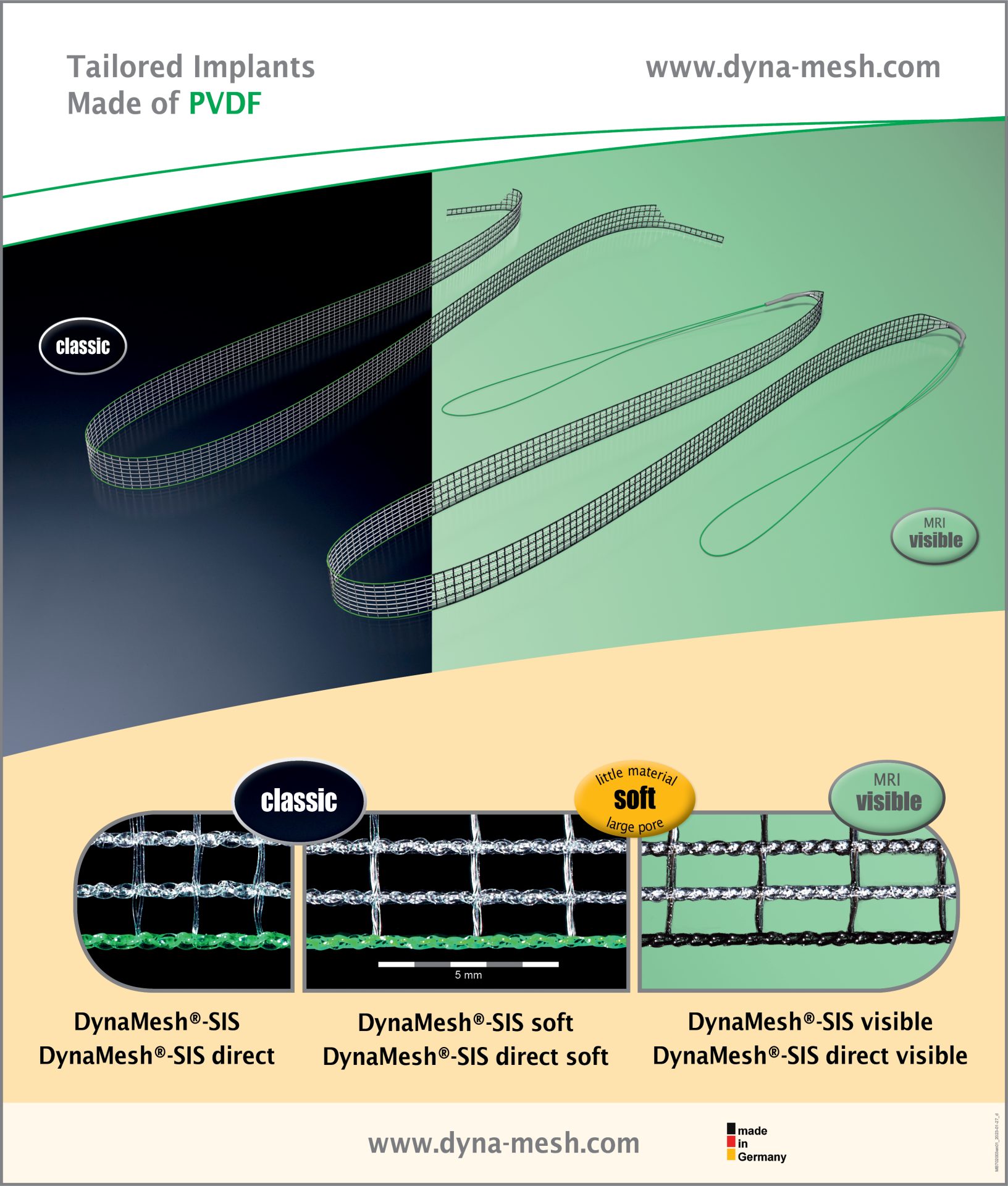
Surgical Treatment of Pelvic Organ Prolapse & Stress Urinary Incontinence (#FL158)
2023-05-11 / 09:00 AM to 2023-05-11 / 12:00 PM [Timezone: Europe/Berlin]
Bilateral Apical Fixation
A New Standard in Laparoscopic Pelvic Organ Prolapse Surgery
The focus of the training is on the application of minimally
invasive laparoscopic surgery in all areas of operative
gynaecology.
- Decensus surgery with organ preservation and best
possible reconstruction of physiological functions - Surgical treatment of stress urinary incontinec using
the transvaginal tape technique (TVT) - Avoidance of mesh complications through correct, anatomical ligament replacement, with the guiding principle: „As little mesh as necessary, as correct
as possible“
LiSTO.academy offers a digital live surgery training with
real-time verbal interaction between surgeons and participants throughout the entire surgical procedure.

DynaMesh®-SIS implants are designed as a midurethral sling for soft tissue reinforcement of the pelvic floor as part of the surgical treatment of stress urinary incontinence caused by a hypermobile urethra and/or intrinsic sphincter deficiency.

DynaMesh®-SIS direct implants are designed as a midurethral sling for soft tissue reinforcement of the pelvic floor as part of the surgical treatment of stress urinary incontinence caused by a hypermobile urethra and/or intrinsic sphincter deficiency.

DynaMesh®-CESA implants have been specially developed for pelvic floor reconstruction, and particularly for reinforcing or replacing the uterosacral ligaments, in laparoscopic or open surgical technique.
The implants are used in the treatment of a prolapse of the internal genitalia, such as a cervical stump prolapse.

DynaMesh®-VASA implants have been specially developed for pelvic floor reconstruction, and particularly for reinforcing or replacing the uterosacral ligaments, in laparoscopic or open surgical technique.
The implants are used in the treatment of a prolapse of the internal genitalia, such as a vaginal stump prolapse.



